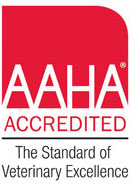Educational Articles
-
Senior dogs should be assessed by a veterinarian at least every six months. A nutritional assessment can help the veterinarian identify changing energy or nutrient requirements, which may warrant a diet change. Senior diets vary widely in nutrient profiles as there are no established standards. It remains vital that older dogs stay well hydrated. Recommendations for senior dog diets need to be based on regular evaluations and discussion between veterinarian and owner.
-
Interactive feeders that require a pet to think and work for their food call upon the natural instinct to hunt or forage. Besides being fun, these food puzzles may help both physical and behavioral problems in cats and dogs. When used correctly, interactive feeders may benefit pets that eat too quickly, become bored when alone, or suffer from separation anxiety.
-
This handout discusses the need for ensuring your pregnant dog is receiving adequate nutrition to make sure both she and her puppies thrive during this time of increased demands on her body. Feeding and diet suggestions are provided.
-
Special attention needs to be given to a cat’s nutrition before and during her pregnancy to promote a healthy birth and healthy kittens. It is important to maintain a good body condition throughout pregnancy as her weight increases. A good quality kitten or all life stages diet is recommended during the entire pregnancy; ideally one evaluated using feeding trials. This diet is usually fed throughout the lactation period, but attention to body condition is essential here as well, and the diet may need to be restricted if there is a small number of kittens or the cat starts becoming overweight. Weaning is usually aided by feeding significantly less food for a few days while restricting access to nursing to decrease milk production.
-
Special attention needs to be given to a dog’s nutrition during her pregnancy to promote a healthy birth and healthy puppies. It is important to maintain a good body condition throughout pregnancy as her weight increases. A good quality adult maintenance diet is recommended during the first 40 days but after this the energy demand increases greatly and this is most easily met by feeding puppy food. This diet is usually fed throughout the lactation period, but attention to body condition is essential here as well, and the diet may need to be restricted if there is a small number of puppies or the dog starts becoming overweight. Weaning is usually aided by feeding significantly less food for a few days while restricting access to nursing to decrease milk production.
-
Feeding your cat can be easily accomplished with mealtimes on a set schedule. At least two meals per day are best for your cat. The use of food toys or interactive feeders adds interest to your cat’s mealtime. Routines help your cat adjust to changes that may occur in your home as well as allow you to monitor her health.
-
Feeding your dog can be easily accomplished with mealtimes on a set schedule. At least two meals per day are best for your dog. The use of food toys or interactive feeders adds interest to your dog’s mealtimes. Routines help your dog adjust to changes that may occur in your home as well as allow you to monitor his health.
-
With all cancer management strategies, providing optimal nutrition for your cat is essential. The metabolic effects of cancer will persist after treatment but with your veterinarian’s guidance, you can adjust your cat's nutrient profile and potentially avoid some of these negative side effects. Carbohydrates promote cancer cell growth, while cancer cells have a difficult time using fat as an energy source, so foods that are relatively high in fat and low in carbohydrate may benefit cats with cancer. The effects of surgery, chemotherapy, and radiation therapy will be considered when your veterinarian advises a nutrient profile, formulation, quantity, and delivery method for your cat.
-
The food you feed your cat is the largest factor you can control to give them optimal health. The diet formulation should change over your cat’s life as she moves through the different stages of kitten, adult, senior, and geriatric. The diet type should change over their life as their needs will be different at different ages. The diet type can help manage or improve many medical conditions. Your veterinarian is always ready to help you make the best nutritional choices for your cat.
-
With all cancer management strategies, providing optimal nutrition for your dog is essential. The metabolic effects of cancer will persist after treatment but with your veterinarian’s guidance, you can adjust your dog’s nutrient profile and potentially avoid some of these negative side effects. Carbohydrates promote cancer cell growth, while cancer cells have a difficult time using fat as an energy source, so foods that are relatively high in fat and low in carbohydrate may benefit dogs with cancer. The effects of surgery, chemotherapy, and radiation therapy will be considered when your veterinarian advises a nutrient profile, formulation, quantity, and delivery method for your dog.

